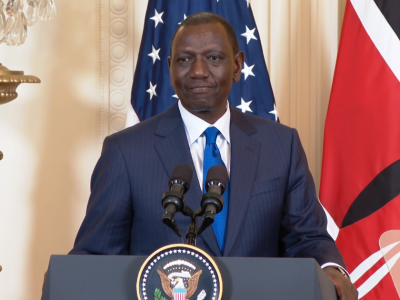
We’ve all been there: that moment when we’re reduced to Anglo-Saxon invective, swearing at our laptops in utter frustration at the mind-numbing futility of trying and failing to buy a ticket to a big cultural event online.
We’ve all got a horror story. Mine was failing to get family tickets to see Tom Holland as Romeo at the Duke of York’s theatre earlier this year. I gave up when I was number 23,867 in the queue at breaktime because I had to go and teach in Period 3.
If ticket frustration is universal, then there is one company that epitomises this horror show; an impenetrable monolith whose name is so synonymous with bad service experiences that it makes British Airways, or our local GP practice, look like the Ritz: Ticketmaster.
The news that the US Department of Justice and 30 US states were filing an anti-trust lawsuit against Ticketmaster’s parent company, Live Nation, alleging that it is abusing its monopoly position for live events, will have been cheered by all putative gig-goers.
Some 14 years after the two giants merged in 2010, Live Nation now controls 80 per cent or more of big venues’ primary ticketing. And, it’s accused of punishing any large concert venue that chooses to use another provider, like AXS.
This news broke as my daughters headed to Lisbon to see the megastar Taylor Swift on her phenomenal “Eras” tour. It proved easier for them to buy tickets to sunny Portugal than it did in the UK.
The timing of the news is even sweeter, because it was Ticketmaster’s botched handling of the on-sale launch of tickets to the “Eras” tour’s US leg, which first prompted the US Attorney General, Merrick Garland, to investigate Live Nation. Now he has suggested it’s “time to break up Live Nation-Ticketmaster” for the good of fans and the music industry.
Delays, exorbitant prices, service charges and technical glitches are common experiences for anyone who has ever tried to buy tickets online. All merged in a perfect storm under unprecedented, but not unpredictable, demand for the “Eras” tour pre-sale release. It crashed the site and the public sale was delayed.
Swift herself condemned Ticketmaster, which she says had promised it would be able to handle demand, writing on Instagram that it had “been excruciating for me to just watch mistakes happen with no recourse.”
Those mistakes are one thing; the resale market is another. We all know the intensely aggravating feeling of going online to buy tickets at 10am, without success, only to see already expensive tickets available at hugely inflated prices, on the resale market at 10.03am.
But what incentive does Ticketmaster have to stop this when it gets a cut of the resale price? Effectively, it is selling the same ticket twice.
It wasn’t this difficult before the internet. I remember my student self strolling to an Exeter record store to buy tickets to Glastonbury 1986 for £17! The tears of joy of my then girlfriend when, in 1982, I produced two tickets to the Rolling Stones at Wembley Stadium for £10.50 each – a lot for a schoolboy – will live with me for ever.
And I’m so glad I got those tickets. Live experiences are seminal staging posts in life; sometimes life-changing. Taylor Swift today is as iconic an experience to a generation as seeing David Bowie was to me in 1981.
Swifties and all fans should be able to see their idols without feeling ripped-off, exploited or ultimately disappointed. So yes, Merrick Garland: let’s break up Live Nation.











